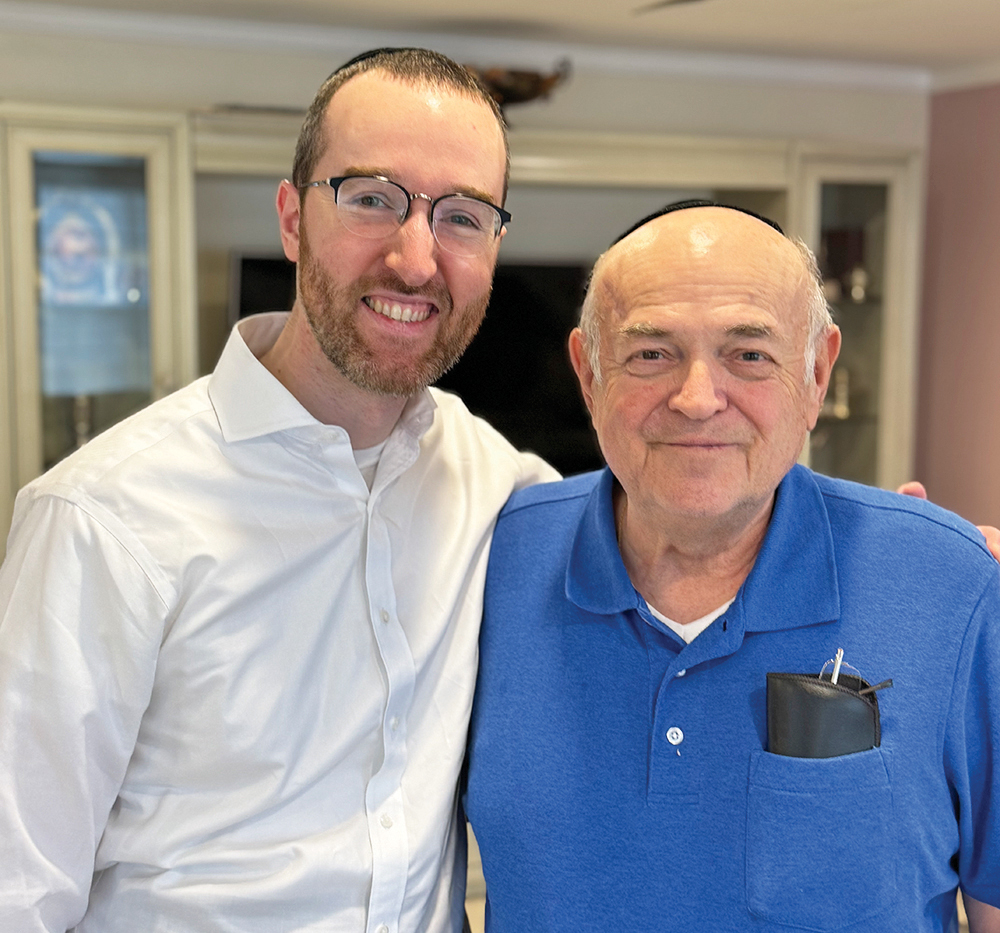
Jewish midrashic literature relates how after Hashem created heaven and earth, He keeps busy by making matches. Not all matches, however, are for the purpose of marriage. Some involve life and death pairing. This week’s parsha of Terumah begins by quoting God telling Moshe to instruct the children of Israel, “Let them take for me a portion, from every man that which his heart motivates him… (Shemot 25:1).” Rashi interprets this to mean that each person should set aside a portion of their resources to serve a higher purpose. For most people, this means setting aside a portion of their material wealth for a charitable cause. For others, though, they hear the calling to donate one of their organs to save another person’s life.
Meet Moshe Palmer, a 38 year old accountant from Lakewood. Moshe comes from a religious background where performing chesed is an everyday experience. Moshe lives with his wife and four children, ages 10, 8, 5 and 2 years of age.
Nine years ago, Moshe was impressed when his own father donated a kidney to a stranger. So it was no big deal for him to volunteer to be swabbed when Renewal—an agency which provides kidney patients the tools and information they need to find a living donor—had a screening and swabbing event in his community. Nothing much happened afterwards until five years later, when a perfect match was found for him; Jack Lazerowitz, a 75 year old man—originally from Boro Park—who now lived in Boca Raton, Florida. Unfortunately, Jack’s kidneys were failing and he faced a future of daily dialysis treatments, unless he could find a kidney donor. Then, along came Moshe. The professionals at Renewal facilitated the match and within five weeks, the successful transplantation procedure was completed at Northwell Hospital in Long Island.
Moshe related that he had to think this through carefully to make sure he was doing what was best for himself, along with the recipient. Of course, he first consulted with his wife and family. They all encouraged him to go ahead. He then consulted with his rav, who advised him to follow his heart and do what he thought was best. Moshe had no doubts. He stated, “How could I not do it?”
After a two week recovery period, Moshe returned to work. He was later asked if he had any regrets. He answered with an emphatic “No.” In fact, Moshe now believes that he benefitted more than Jack, the kidney recipient. He now has a fresh perspective on life and appreciates every day that he is alive.
Being kind and acting charitably is one of the 13 attributes of Hashem, whom we are encouraged to model. Pirkei Avot (3:22) reminds us that simply being scholarly or performing mitzvot without engaging in good deeds is comparable to a tree that has many branches but has no root system. Eventually, a wind will come and blow it over.
One need not belong to a synagogue “chesed” committee to perform acts of kindness. This can be done on an individual level as well. After all, our morning davening reminds us that performing gemilat chasadim has no limits. The fruit of their rewards are felt in this world and ultimately in the world to come.
Since its inception in 2022, Renewal National has developed relationships with multiple transplant centers across the United States. This enables patients across the country to utilize the services that Renewal offers at their local transplant center. With their state-of-the-art high resolution swabbing, and large database of potential donors to swap with, they are able to connect donors and recipients based on Eplet matching. This reduces the probability of rejection, enables patients to safely reduce immunosuppressive medication and increases the longevity of the transplanted kidney.
Renewal accompanies the donor and recipient throughout the entire transplant. Renewal strives to make the experience as smooth and comfortable as possible. This includes reimbursement to the donor for any expenses associated with donation, including loss of wages, transportation and convalescence. Renewal has guides and helpful information for donors and recipients, to help take the guesswork out of transplant.
Moshe and Jack had a reunion this past week. Moshe flew down to Boca Raton. He joked that, “I wanted to come down and visit my kidney.” Thankfully, both Moshe and Jack have returned back to good health. They had an amiable get-together and were most grateful for the experience they shared. Since Moshe epitomized all the traits of a tzaddik I could not let him leave without giving me a personal bracha. The biggest bracha that Moshe gives to us all, however, is to re-imagine what it means to give of oneself for a higher purpose. Sometimes, this can even be an organ to save someone else’s life.
Rabbi Dr. Avi Kuperberg is a forensic, clinical psychologist and a member of the American Psychology-Law Society. He is the coordinator of Bikur Cholim/Chesed at Congregation Torah Ohr in Boca Raton, Florida. He can be reached at [email protected].












